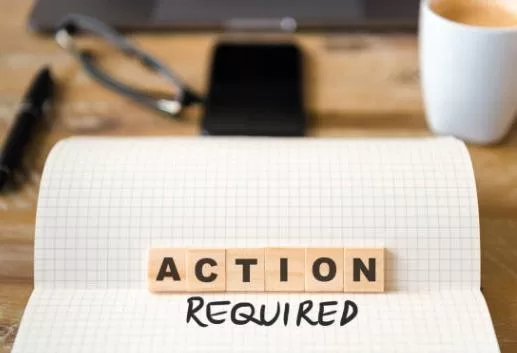How Can I Use Self-Love To Improve My Relationships?
Learn how to use self-love to enhance your connections with others.

Selfpause Affirmation App
Download the app to get 1,000’s of affirmation meditations and everything you need to write, record and listen to your own.
Relationships are essential to our existence. Whether it’s a romantic relationship, a platonic friendship, or a familial link, we rely on these connections for support, belonging, and happiness. But, maintaining connections can be difficult and need work. In order to improve our connections with others, it is vital to focus on developing self-love and care.
The act of treating oneself with kindness, compassion, and understanding is self-love. It is about accepting ourselves as we are, warts and all, and recognizing our individual worth. When we love ourselves, we are better able to cultivate healthy, pleasant relationships with others.
These are some ways self-love can strengthen your relationships:
Develop self-awareness

Self-love is predicated on self-awareness. It entails comprehending how our thoughts, emotions, and actions affect our life. When we are self-aware, we may identify our strengths and limitations, as well as our relationship-affecting triggers and patterns.
To practice self-awareness, devote some time to introspection. Consider inquiries such as, “What makes me happy?” “What am I afraid of?” What are my core beliefs? “How should I react to conflict?” By comprehending your own wants, desires, and limitations, you will be able to communicate them to others more successfully, so strengthening your connections.
Set constraints

Establishing limits is an essential component of self-love. Boundaries are limitations that we impose on ourselves to safeguard our emotional, mental, and physical health. When we set limits, we communicate to people how we wish to be treated and which actions we find acceptable and unacceptable.
Saying “no” to activities or demands that do not line with your beliefs or priorities, setting aside time for self-care, and communicating your needs and emotions to others are all examples of boundaries. By establishing limits, you can foster healthier relationships with individuals who respect and honor your limits.
Develop self-compassion

Self-compassion entails treating oneself with care and understanding when we face failures, errors, or challenging feelings. Self-compassion allows us to accept our imperfections and limits without self-criticism or judgment. This can assist us in approaching our relationships with greater empathy and comprehension.
To promote self-compassion, practice treating yourself with the same consideration and kindness you would extend to a friend. Be kind to yourself when you make mistakes or encounter obstacles. Keep in mind that everyone makes errors and you are not alone in your challenges. By practicing self-compassion, you may provide the same kindness to others in your relationships.
Prioritize your requirements

Self-love requires you to prioritize your own needs. It entails identifying one’s own wants and requirements and ensuring that they are realized. When we prioritize our needs, we are better able to bring our best selves to our relationships.
To prioritize your needs, you must identify what is most important. What are your priorities and values? What activities provide you happiness and satisfaction? After you have a firm grasp of your requirements, be sure to include them into your everyday routine. Prioritizing your needs can help you feel more balanced and centered in your relationships, whether it’s scheduling time for a hobby or practice that you like or ensuring that you receive adequate rest and self-care.
Develop your communication abilities

Good communication is essential to maintaining successful relationships. When we communicate effectively, we are better able to convey our thoughts, emotions, and desires to others, as well as to listen to and comprehend their viewpoints. Effective communication can assist us in resolving issues, establishing trust, and strengthening our relationships with others.
Focus on active listening, empathy, and assertiveness to develop your communication abilities. Active listening entails giving the speaker your undivided attention, avoiding distractions, and asking clarifying questions to ensure you comprehend their message. Empathy entails placing oneself in the other person’s shoes and attempting to comprehend their emotions and point of view. In order to be assertive, you must articulate your demands and beliefs in a clear and courteous manner.
By practicing these abilities, you can enhance your communication with others, leading to deeper and more satisfying relationships.
Embrace vulnerability

Vulnerability is commonly viewed as a weakness, however it is an essential component of self-love and good relationships. Vulnerability entails being honest and open with people about one’s thoughts, feelings, and experiences, despite the discomfort or risk involved. When we allow ourselves to be vulnerable, we are able to develop stronger relationships with people and feel greater closeness and trust.
To embrace your vulnerability, you must first acknowledge your anxieties and insecurities. Try expressing your emotions to others, even if it feels frightening or awkward. Remember that vulnerability is a two-way street, and that by being vulnerable with others, you allow them to be vulnerable with you as well.
Perform forgiveness

Self-love and successful relationships require the capacity for forgiveness. Keeping grudges or resentments can be detrimental to our emotional health and our relationships with others. We are able to let go of previous hurts and move forward with a sense of serenity and acceptance when we practice forgiveness.
To practice forgiveness, you must first acknowledge your own hurt or anger. Let yourself to experience these feelings without judgment or condemnation. Then, attempt to understand the other party’s motivations and intentions by putting yourself in their shoes. Finally, practice letting go of your past grudges and resentments.
Self-love is a vital component of healthy partnerships. We may strengthen our relationships with others and experience greater fulfillment, joy, and connection in our lives by increasing self-awareness, creating boundaries, prioritizing our needs, exercising communication skills, embracing vulnerability, and practicing forgiveness. Remember that loving ourselves lays the groundwork for loving others.
